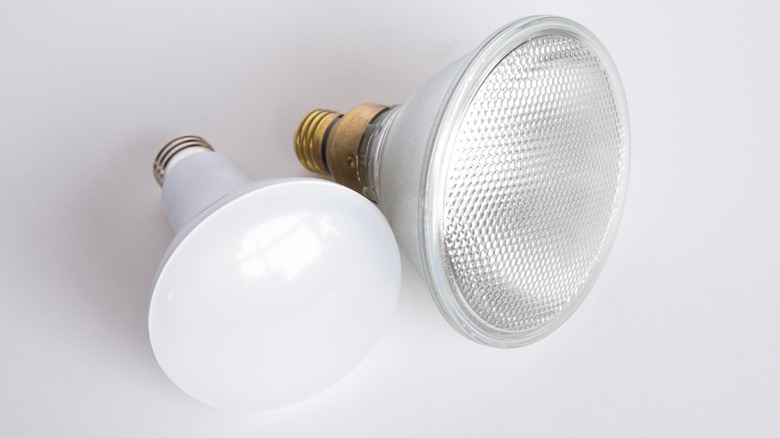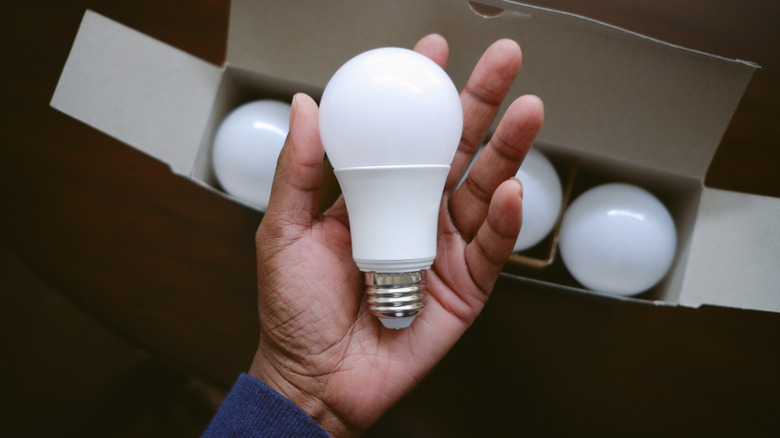Can LED Lights Catch Fire? How Safety Stacks Up To Halogen Bulbs
LED lights are a popular choice for homes and businesses alike, thanks to their energy efficiency, long lifespan and sleek design. But with their growing use comes an important question about safety, especially when compared to older lighting options like Halogen bulbs. If LED lights are your preference, it's worth understanding the concerns about possible fire hazards and also how the safety of LED compares to Halogen.
Because they're more energy efficient, LED bulbs are likely not going to start a fire in your home, as they convert most of the energy used into light. As a result, they're safer than Halogen bulbs, which can't convert as well, leading to hotter temperatures. In a worst-case scenario, a 300W LED light bulb can get as hot as 500°F, which does sound bad, but a 300W Halogen bulb can get over 1000°F, making it much more dangerous. This means that even in poorly ventilated areas or as a result of bad wiring, LED lights are much safer than Halogen bulbs, which are banned in the U.K. LED bulbs just can't get hot enough to pose a real threat and certainly not hot enough to set anything on fire.
However, LED string lights can be tricky because there are multiple lights joined together, and if overheating occurs, a fire could potentially happen. But this is usually due to poor installation, as placing them near flammable materials or using the wrong power supply could trigger a dangerous situation.
You should take some precautions when using LED lighting
LEDs, while a costly lighting solution, are a safe and reliable alternative to other types of lighting, but that doesn't mean you shouldn't take precautions when using them. It's always best to know what the potential risks are and determine what's best for your environment.
The manufacturer's website is the best place to start when trying to figure out what size bulb you need. You'll also need to know the correct wattage to get, which will be specific to your situation. Keeping an eye on the bulbs once they're installed is also important, and of course, not using lamps or other devices near water can mean the difference between a quiet day at home and a potentially deadly accident. Some LED bulbs could also smoke in humid environments, and if so, the best move is to unplug the device and contact an electrician.
LEDs could also affect you physically, thanks to their blue light source. This blue light can negatively impact your sleep patterns and possibly even damage your eyesight.

